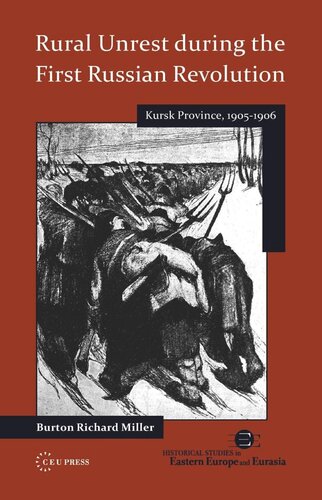

Most ebook files are in PDF format, so you can easily read them using various software such as Foxit Reader or directly on the Google Chrome browser.
Some ebook files are released by publishers in other formats such as .awz, .mobi, .epub, .fb2, etc. You may need to install specific software to read these formats on mobile/PC, such as Calibre.
Please read the tutorial at this link: https://ebookbell.com/faq
We offer FREE conversion to the popular formats you request; however, this may take some time. Therefore, right after payment, please email us, and we will try to provide the service as quickly as possible.
For some exceptional file formats or broken links (if any), please refrain from opening any disputes. Instead, email us first, and we will try to assist within a maximum of 6 hours.
EbookBell Team

4.0
56 reviewsThe narrative of peasant unrest in Russia during 1905–1906 combines a chronology of incidents drawn from official documents, with close analysis of the villages associated with the disorders based upon detailed census materials compiled by local specialists. The analysis concentrates on a single province: Kursk Oblast, bordering the now independent Ukraine. In place of the general surveys of the revolution that dominate the literature, Miller focuses on local events and the rural populations that participated in them. Documents the degree to which the peasant community had been pushed onto the path of change by the end of the nineteenth century, how much the “peasantry” itself had become increasingly heterogeneous in outlook and occupation, and the rapidity with which these processes had begun to corrode the legitimacy of the older order. Miller concludes that unrest was concentrated mostly among peasant communities for whom the benefits the vital interactions between social unequals that had maintained a fragile social peace in the countryside had been radically eroded; he furthermore identifies the prominent role played by that spectrum of persons that retained their ties to their villages, but stood toward the margins of rural life.